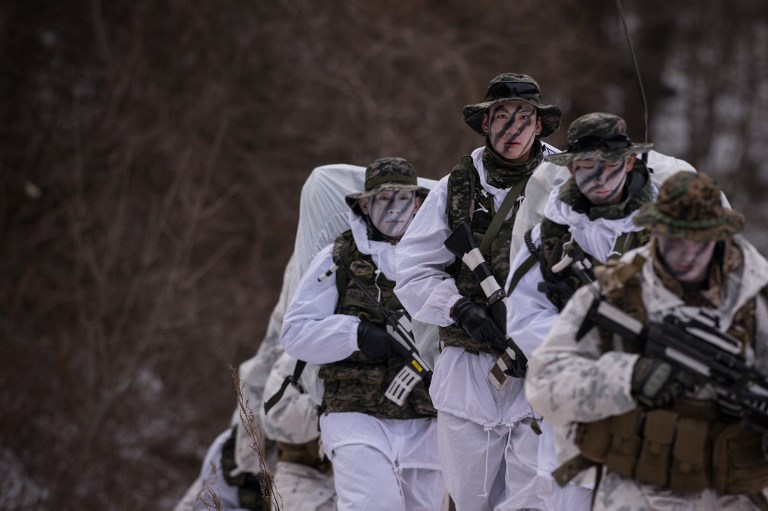
by Sylvie LANTEAUME
Agence France Presse
WASHINGTON, United States (AFP) — The United States and South Korea have scaled down a joint military exercise scheduled for the spring of 2019 to facilitate nuclear talks with North Korea, US Defense Secretary Jim Mattis said Wednesday.
“Foal Eagle is being reorganized a bit to keep it at a level that will not be harmful to diplomacy,” Mattis said, adding that it would be “reduced in scope.”
US and South Korean forces have been training together for years, and routinely rehearse everything from beach landings to an invasion from the North and even “decapitation” strikes targeting the North Korean regime.
But personal insults and threats of war between US President Donald Trump and North Korean leader Kim Jong Un were replaced last year by a rapid diplomatic rapprochement.
In April, citing a “fresh climate of detente and peace” on the peninsula, Kim declared the nuclear quest complete and said his country would focus on “socialist economic construction.”
The thaw culminated in a historic summit in Singapore in June, where the leaders signed a vaguely-worded document on denuclearization of the peninsula.
Washington and Seoul have since suspended most of their major joint exercises — characterized by Trump as expensive and “very provocative” — including Ulchi Freedom Guardian in August and Vigilant Ace, slated for next month.
But little other progress has been made, with the US pushing to maintain sanctions against the North until its “final, fully verified denuclearization” and Pyongyang condemning US demands as “gangster-like.”
‘Double game’
Earlier in November Pyongyang threatened to “seriously” consider returning to a state policy aimed at building nuclear weapons if Washington did not end its tough economic sanctions.
And last month, the North’s state media carried a near 1,700-word commentary accusing the US of playing a “double game”, implicitly criticizing Trump for his comments aimed at barring Seoul from lifting sanctions against Pyongyang.
Despite a flurry of diplomacy on and around the peninsula differences are emerging between Seoul and Washington, which stations 28,500 troops in the South to protect it from its nuclear-armed neighbor.
The South’s doveish president Moon Jae-in has long favored engagement with the North, which is subject to multiple UN Security Council sanctions over its nuclear and ballistic missile programmes.
He has dangled large investment and joint cross-border projects as incentives for steps towards denuclearization, while the US has been adamant pressure should be maintained on Pyongyang until it fully dismantles its weapons programs.
Pompeo on Wednesday defended the US strategy on the peninsula, noting that North Korea had halted missile tests and has not conducted a nuclear test in over a year.
“And I do hope there’ll be a summit between the two leaders early in 2019,” he said in an interview with KCMO radio.
Trump has also said he hopes to have a second meeting with Kim early next year, but talks between Pompeo and a top North Korean official, partly to prepare for the meeting, were cancelled.
The US said the North axed the talks because they weren’t ready, and Trump insisted he was in “no rush.”
© Agence France-Presse








